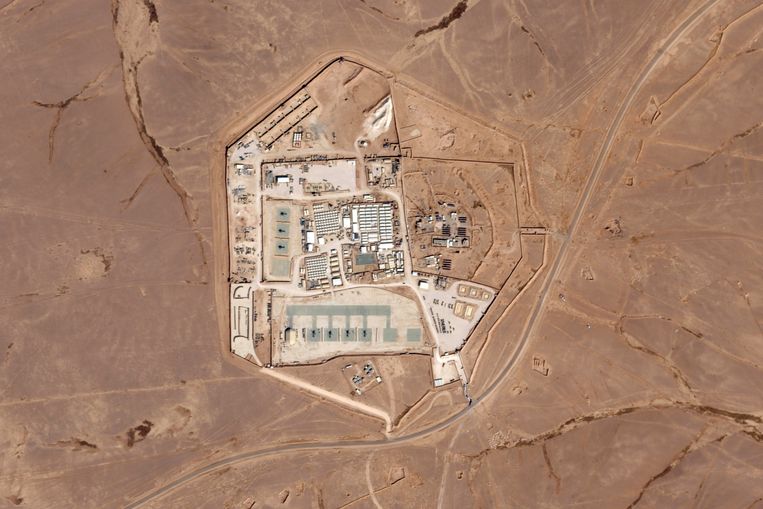Warnings have been going on for weeks: It's only a matter of time before U.S. soldiers die as a result of the latest escalation in the Middle East. Sunday morning came. Three Americans were killed in a drone strike northeast of Jordan near the trilateral border between Syria and Iraq. They are The first American death since the Gaza war began on October 7. Pro-Iranian militias operating in both Syria and Iraq have claimed responsibility for the attack.
For weeks, pro-Iranian groups have been firing missiles and drones at US military bases, but so far this has resulted in only injuries. In their own words, these Shiite militias are trying to increase pressure on the US and Israel to end the bombing campaign on Gaza. On the other hand, the White House tries to keep the files separate and refuses to connect attacks elsewhere (Red Sea, Iraq and Syria) with the Gaza war.
The number of injured this weekend, known to be at least 34, points to a major attack on the US military base known locally as 'Tower 22'. President Joe Biden's administration pointed to “extremist” pro-Iran groups without naming them. Biden vowed to strike back “at a time and manner that suits us.” He also consoled the relatives of the soldiers.
As usual, Tehran denies any involvement. That's not very convincing: Behind the 'Islamic Resistance in Iraq' are fighting groups armed and trained by Iran, which have been part of the Iranian foreign agenda for years. The attacks may have been coordinated with Tehran.
No good options
The American answer would be. Question: How and where? The problem is, there aren't really any good options. Republican activists believe now is the time for a military strike on Iran, but that is a very unattractive option for Biden because it could unleash a regional war that no one wants. If Washington were to 'simply' attack Shiite militias in Iraq and Syria, this would have little deterrent effect. Fighters will take it as an invitation to continue their tactics.
The United States announced last week that it would reduce its military presence in Iraq in an effort to exit the conflict. About 2,500 soldiers are currently stationed there, formally to fight terrorism (Islamic State), but informally as a counterbalance to Tehran's influence.
A key demand of pro-Iranian militias is for the US to leave. They are now getting their way to some extent, although it is still unclear – for example, when the Americans will leave and whether part of their forces will be left behind. The US will soon discuss this with the government in Baghdad.
'Insensible escalation'
“There is only one sensible answer,” he said writes Middle East expert Thanasis Kampanis X. “The Return.” According to him, the longer the Americans stay in Iraq and Syria (where there are 900 soldiers), the deeper they will sink into this “senseless escalation”. Kampanis believes the US is responsible for this escalation, as the US has almost uncritically supported Israel's controversial war in Gaza.
Since mid-October, Shia militias (calling themselves the “Islamic Resistance in Iraq”) have launched more than a hundred and fifty attacks from Iraq with unguided missiles and drones. Central authorities in both Syria and Iraq are so weak that they can operate with impunity. The borders between those countries are fluid.
It is new that they attacked Jordanian territory this time. Officials in Jordan initially denied their country was affected. The royal family may have feared that the presence of American soldiers – who are very unpopular – in their country would draw too much attention.

“Passionate analyst. Thinker. Devoted twitter evangelist. Wannabe music specialist.”









More Stories
From Concept to Creation: Designing Your Signature Acrylic Nails
How to Care for Your Marginated Tortoise Year-Round
Biden and Xi want to sit down one last time